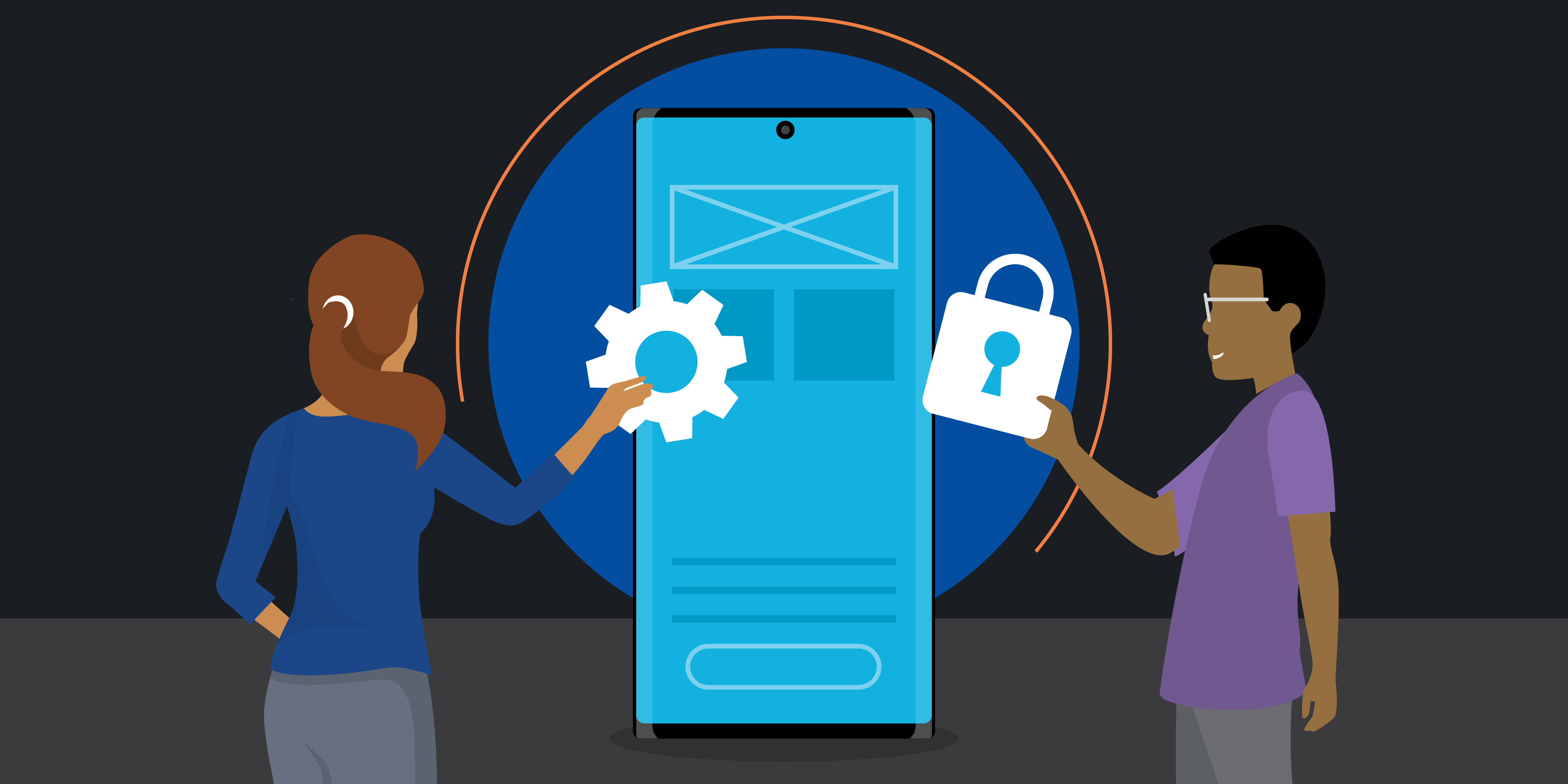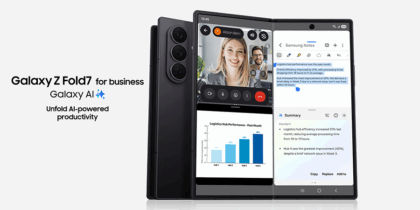When you use an app regularly, you develop a muscle memory for how to launch it on a smartphone. This type of mental embedding is the goal developers need to set for themselves as they create apps to help their organizations — or others — work better, faster.
The problem is that sometimes, developing a mobile business app may feel like you’re working on a remote island somewhere, with few friends to look to for inspiration or support. That’s one of the reasons the 2019 Samsung Developer Conference featured “Partner Showcase: Creating Apps Optimized for Samsung Devices.”
Swalé Nunez, solution innovations specialist at Samsung Electronics America, dove into developer best practices and B2B tips gleaned from the experiences of Samsung partners. By the end of this talk, the audience was prepared to start ideating around their new enterprise app — or even get to work on the next B2B startup.
“For [B2B], it’s about identifying pain points and challenges, and identifying solutions for that,” said Nunez. “For consumer apps it’s more about making things fun, whereas enterprise apps solve real world problems. It’s about improving workflows … you can change the world using enterise applications. They’re the ones out there solving real-world problems. And that’s where [Samsung] has to do the best we can to help champion that.”
Key differentiators of business apps
Organizations may have initially put off creating business apps because they have been concerned about the challenges that differentiate them from those operating in a business-to-consumer (B2C) environment, Nunez said.
Consumer developers may take a casual approach to updating their apps, and may prioritize user experience or novelty above information security. B2B app developers, on the other hand, need to put enterprise-grade security at the forefront, as well as the ability to remotely manage and provision their apps across an entire workforce.
“This is why we see companies choosing Samsung as a mobility platform — because we meet all the criteria: open, innovative and secure,” he said, noting the capabilities of the Samsung Knox platform, Knox Configure and the Knox Partner Program to deploy powerful apps on a device where mission-critical data will remain protected. “You don’t have to limit the necessary access or control of the device you want to offer; we can help enable that instead.”
The talk showcased leading examples of business apps that have been optimized for Samsung devices, and demonstrated that developers are supported by an ecosystem of partners and like-minded firms.
“We’ve seen a lot of what you would think of as more traditional companies that now consider themselves an innovation shop or a software company based on their ability to create apps with the right mobility management behind them,” Nunez said. “They’ve done such a good job of streamlining this process and understanding the needs of their business that, rather than developing apps that just are supplementing their efforts to achieve a business goal, they’re transforming their business to more of a software-first approach.”
The art of what’s possible
Transformations don’t happen overnight, of course, and Nunez recommended B2B developers start with low-hanging fruit in terms of what they want a mobile business app to do.
“You’re not trying to conquer the world or get everything done,” he said. “Look to address the key processes your team does enough times and consider how they could do that easier or better while on the go with a smartphone. That way you’ll find the right key features and still get a sense of what the support cycle will be.”
Get business app development done right
Transform your workplace with this free guide to a successful app development project. Download Now
These aren’t all questions developers need to answer themselves, however. Nunez said one of the other key advantages of optimizing business apps for Samsung devices is the ability to take advantage of the company’s expertise.
“In my own time with Samsung and as a part of the role I play here, I’ve identified what these challenges are. So has my team,” he said. “We understand the needs of the development community, and we have the tools to address those particular needs, from tooling, support, or just from an ideation or mentorship perspective. A major goal of SDC was to show developers that they’re not alone, that Samsung is here to support them.”
Discover essential business apps to empower your team — and explore exclusive business pricing, financing and trade-in options and other deals on everything from phones and tablets to monitors and memory.








